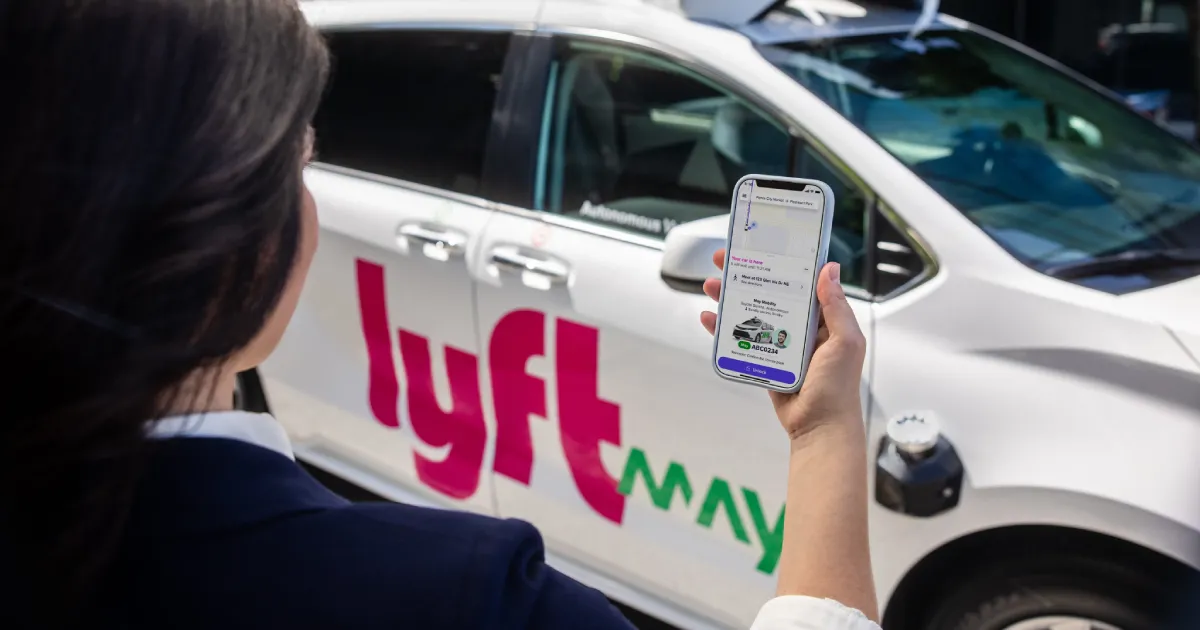Lyft and May Mobility launch robotaxi rides in Atlanta

Lyft riders in Atlanta can now hail a self-driving vehicle through the app, marking the first commercial rollout of the company’s partnership with autonomous vehicle startup May Mobility. The pilot program, which began this week, represents Lyft’s latest effort to gain ground in the increasingly competitive robotaxi market.
A Modest Debut
The service is starting small. A limited fleet of hybrid-electric Toyota Sienna Autono-MaaS vehicles, each equipped with a human safety operator behind the wheel, is available in Midtown Atlanta. Rides can be booked on demand or through Lyft’s “Wait & Save” feature during weekday morning and afternoon hours. The companies plan to expand service into evenings and weekends in the near future.
Lyft and May Mobility say the Atlanta launch is just the beginning. The companies expect to scale the fleet from dozens of vehicles to hundreds, and eventually thousands, across multiple cities.
Competitive Landscape
Atlanta is already a hotbed for autonomous vehicle activity. Both Uber and Waymo began offering fully driverless rides in the city earlier this summer, giving Lyft stiff competition right out of the gate.
Lyft, for its part, has struggled to match its rivals’ momentum in the AV space. The company’s earlier partnerships — with Argo AI in Miami and Austin, and with Motional in Las Vegas — have either collapsed or stalled. Argo AI shut down in 2022, costing Lyft $135.7 million, while Motional paused its service in May 2024 after cutting staff.
Meanwhile, Uber has aggressively expanded its AV partnerships, building a network of 20 global partners across ride-hailing, freight, and delivery that the company says already supports 1.5 million annualized trips. Ironically, May Mobility is one of Uber’s partners as well, with plans to launch robotaxis in Arlington, Texas later this year.
Investor Sentiment and Growth Plans
Despite its rocky history, Lyft is under pressure to prove its AV strategy can deliver results. Earlier this year, Bank of America analysts downgraded Lyft stock over concerns it would lose ground to Uber and Waymo. But optimism has returned following strong Q2 earnings. Analysts say a successful robotaxi rollout could help sustain momentum.
The Atlanta launch also comes on the heels of other strategic moves. In August, Lyft announced a deal with China’s Baidu to launch robotaxis in Europe in 2026, and CEO David Risher has pointed to a Mobileye-powered deployment in Dallas by 2026.
May Mobility’s Role
For May Mobility, Atlanta represents its second commercial operation in Georgia, joining a microtransit service in Peachtree Corners. The startup has typically focused on low-traffic, geofenced deployments in places like Grand Rapids, Minnesota; Martinez, California; and Tokyo’s waterfront. Expanding into Midtown Atlanta’s busier streets marks a step toward larger-scale operations.
What It Means for Riders
For now, passengers should expect a cautious rollout with safety drivers still in place. But if the pilot succeeds, Atlanta could soon see a steady ramp-up in autonomous rides — signaling that Lyft and May Mobility are serious about staking their claim in the robotaxi race.





